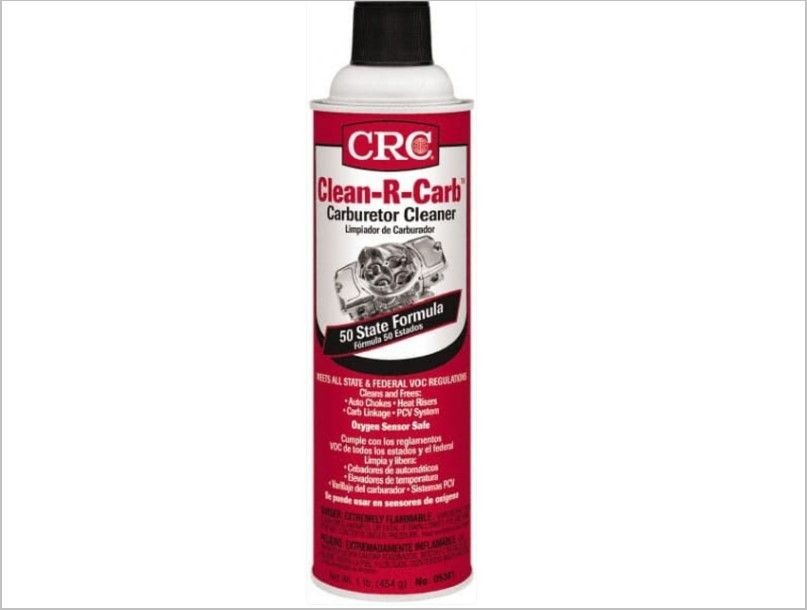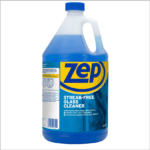Acetone, a colorless and flammable liquid, is a powerful solvent with a wide range of cleaning applications. Its ability to dissolve many substances makes it an effective cleaner for various surfaces and materials.
Acetone as a General Cleaner
Acetone can be used as a general cleaner for removing dirt, grime, and grease from surfaces. It is particularly effective in removing adhesive residue, paint spills, and marker stains. Simply apply acetone to a cloth or sponge and wipe down the surface. However, it’s important to test acetone on an inconspicuous area first to ensure it doesn’t damage the surface.
Acetone as a Carb Cleaner
In the automotive industry, acetone is commonly used as a carburetor cleaner. It helps dissolve and remove carbon deposits, dirt, and varnish that can accumulate in carburetors, restoring their proper function. Acetone can be sprayed directly into the carburetor or applied with a brush.
Acetone as a Contact Cleaner
Acetone is also an excellent contact cleaner for electrical components. It effectively removes dirt, oil, and corrosion from electrical contacts, improving their conductivity and preventing malfunctions. Acetone can be applied to contacts using a cotton swab or a spray bottle.
Can Acetone Be Used As A Cleaner?
Yes, acetone can be used as a cleaner for various applications. However, it’s important to note that acetone is a strong solvent and should be used with caution. It can damage certain materials, such as plastics and fabrics. Additionally, acetone is flammable and should be used in a well-ventilated area.
Safety Precautions
When using Acetone As A Cleaner, it’s essential to follow safety precautions. Wear gloves and eye protection to avoid skin and eye irritation. Use acetone in a well-ventilated area to prevent inhalation of fumes. Keep acetone away from heat and open flames, as it is highly flammable.
Conclusion
Acetone is a versatile cleaner with a wide range of applications. It can effectively remove dirt, grime, grease, and carbon deposits from various surfaces. However, it’s important to use acetone with caution and follow safety precautions to avoid damage or injury.

Acetone: A Versatile Cleaner for Various Applications
Acetone, a colorless and flammable liquid, is a powerful solvent with a wide range of cleaning applications. Its ability to dissolve many substances makes it an effective cleaner for various surfaces and materials.
Acetone as a General Cleaner
Acetone can be used as a general cleaner for removing dirt, grime, and grease from surfaces. It is particularly effective in removing adhesive residue, paint spills, and marker stains. Simply apply acetone to a cloth or sponge and wipe down the surface. However, it’s important to test acetone on an inconspicuous area first to ensure it doesn’t damage the surface.
Acetone as a Carb Cleaner
In the automotive industry, acetone is commonly used as a carburetor cleaner. It helps dissolve and remove carbon deposits, dirt, and varnish that can accumulate in carburetors, improving engine performance and fuel efficiency. Acetone can be sprayed directly into the carburetor or applied with a brush.
Acetone as a Contact Cleaner
Acetone is also an excellent contact cleaner for electrical components. It effectively removes dirt, oil, and corrosion from electrical contacts, ensuring proper conductivity and preventing electrical malfunctions. Acetone can be applied to contacts using a cotton swab or a spray bottle.
Can Acetone Be Used As A Cleaner?
Yes, acetone can be used as a cleaner for various applications. However, it’s important to note that acetone is a strong solvent and can damage certain materials, such as plastics and fabrics. Always test acetone on an inconspicuous area before using it on a larger surface.
Safety Precautions
When using Acetone As A Cleaner, it’s essential to follow safety precautions. Acetone is flammable, so keep it away from heat and open flames. Wear gloves and eye protection to avoid skin and eye irritation. Ensure adequate ventilation when using acetone, as it can release harmful fumes.
Conclusion
Acetone is a versatile and effective cleaner with a wide range of applications. From removing dirt and grime to cleaning carburetors and electrical contacts, acetone can help keep surfaces clean and functioning properly. However, it’s important to use acetone with caution and follow safety precautions to avoid any potential damage or harm.
Can Acetone Be Used As A Cleaner
Acetone, a colorless and flammable liquid, is a powerful solvent with a wide range of cleaning applications. Its ability to dissolve many substances makes it an effective cleaner for various surfaces and materials.
Acetone as a General Cleaner
Acetone can be used as a general cleaner for removing dirt, grime, and grease from surfaces. It is particularly effective in removing adhesive residue, paint spills, and marker stains. Simply apply acetone to a cloth or sponge and wipe down the surface. However, it’s important to note that acetone can damage certain materials, such as plastics and fabrics, so it’s crucial to test it on an inconspicuous area first.
Acetone as a Carb Cleaner
In the automotive industry, acetone is commonly used as a carburetor cleaner. It effectively dissolves and removes carbon deposits, dirt, and varnish from carburetors, restoring their proper function. Acetone can be sprayed directly into the carburetor or applied with a brush.
Acetone as a Contact Cleaner
Acetone is also an excellent contact cleaner for electrical components. It removes oxidation, dirt, and grease from electrical contacts, improving conductivity and preventing malfunctions. Acetone can be applied to contacts using a cotton swab or a spray bottle.
Can Acetone Be Used As A Cleaner?
The answer is a resounding yes. Acetone’s solvent properties make it a versatile cleaner for various applications. However, it’s essential to use acetone with caution and follow safety precautions.
Safety Precautions
- Acetone is highly flammable, so keep it away from heat and open flames.
- Use acetone in a well-ventilated area to avoid inhaling its vapors.
- Wear gloves and eye protection when handling acetone.
- Avoid contact with skin and eyes, as acetone can cause irritation.
- Dispose of acetone properly according to local regulations.
Conclusion
Acetone is a powerful and effective cleaner with a wide range of applications. Whether you’re cleaning general surfaces, carburetors, or electrical contacts, acetone can help you achieve a clean and functional result. However, always remember to use acetone with caution and follow safety precautions to ensure a safe and successful cleaning experience.
Acetone As Contact Cleaner
Acetone, a colorless and flammable liquid, has gained popularity as a versatile cleaner due to its exceptional solvent properties. Its ability to dissolve a wide range of substances makes it an effective choice for various cleaning tasks.
Acetone as a Contact Cleaner
In the realm of electronics, acetone shines as an excellent contact cleaner. Its ability to remove dirt, oil, and corrosion from electrical contacts ensures optimal performance and prevents malfunctions. Acetone’s quick evaporation rate leaves no residue, making it ideal for cleaning delicate electronic components.
Acetone as a Carb Cleaner
Carburetors, essential components of internal combustion engines, often accumulate dirt and debris. Acetone’s powerful solvent action effectively dissolves these contaminants, restoring the carburetor’s proper functioning. It removes gum, varnish, and other deposits, ensuring smooth fuel flow and optimal engine performance.
Acetone as a General Cleaner
Beyond its specialized applications, acetone also serves as a general cleaner for a variety of surfaces. It effectively removes paint, grease, and adhesives from metal, glass, and ceramic surfaces. Its ability to dissolve organic compounds makes it an excellent choice for cleaning laboratory glassware and removing stains from clothing.
Safety Considerations
While acetone is a highly effective cleaner, it’s crucial to exercise caution when using it. Its flammable nature requires proper ventilation and handling. Avoid contact with skin and eyes, and wear appropriate protective gear. Additionally, acetone can damage certain plastics and fabrics, so it’s essential to test it on an inconspicuous area before applying it to the entire surface.
Conclusion
Acetone’s versatility as a cleaner makes it a valuable tool for various applications. From removing dirt and corrosion from electrical contacts to cleaning carburetors and general surfaces, acetone’s solvent properties provide exceptional cleaning results. However, it’s essential to use it with caution and follow safety guidelines to ensure safe and effective cleaning.
Acetone As Carb Cleaner
Acetone, a colorless and flammable liquid, has gained popularity as a versatile cleaner due to its exceptional solvent properties. Its ability to dissolve a wide range of substances makes it an effective choice for cleaning various surfaces and components.
Acetone as a Carb Cleaner
In the automotive industry, acetone is commonly used as a carburetor cleaner. Carburetors, which mix air and fuel for combustion, can accumulate dirt, grime, and varnish over time. Acetone’s strong solvent action helps dissolve these deposits, restoring the carburetor’s efficiency and performance.
Acetone as a Contact Cleaner
Acetone is also an excellent contact cleaner for electrical components. It effectively removes dirt, oil, and corrosion from electrical contacts, ensuring proper conductivity and preventing malfunctions. Its quick evaporation rate leaves no residue, making it ideal for cleaning delicate electronic devices.
Acetone as a General Cleaner
Beyond its automotive and electrical applications, acetone can be used as a general cleaner for a variety of surfaces. It is effective in removing paint, adhesives, grease, and other stubborn stains. However, it is important to note that acetone can damage certain materials, such as plastics and fabrics, so it should be used with caution.
Safety Considerations
While acetone is a powerful cleaner, it is also highly flammable and can cause skin irritation. It is essential to use acetone in a well-ventilated area and wear appropriate protective gear, including gloves and eye protection. Additionally, acetone should be stored in a cool, dry place away from heat and open flames.
Conclusion
Acetone’s versatility as a cleaner makes it a valuable tool for various applications. Its ability to dissolve a wide range of substances, from carburetor deposits to electrical contaminants, makes it an effective choice for cleaning and maintaining a variety of surfaces and components. However, it is important to use acetone with caution and follow proper safety precautions to avoid any potential hazards.
Q&A
Can Acetone Be Used As A Cleaner?
Yes, acetone can be used as a cleaner.
Acetone As Cleaner
Acetone is an effective cleaner for removing grease, oil, and other organic materials. It is often used to clean surfaces before painting or gluing.
Acetone As Carb Cleaner
Acetone can be used as a carburetor cleaner. It helps to dissolve and remove gum and varnish buildup from the carburetor.
Acetone As Contact Cleaner
Acetone can be used as a contact cleaner. It helps to remove dirt, oil, and other contaminants from electrical contacts.
Acetone As Cleaner
Acetone is a powerful solvent, so it is important to use it with caution. It can damage some materials, such as plastics and rubber.




